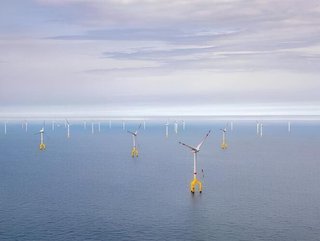Cargill Boosts Renewable Energy Capacity by More Than 40%

Agricultural and food producer giant Cargill’s contracted renewable energy capacity has expanded by 42% following a series of new deals which will see its wind and solar capacity soar.
Thanks to the five deals, an additional 300MW of wind and solar capacity will come online — almost doubling its previous capacity and bringing its total offsite renewable energy portfolio to 716MW.
This comes as Cargill — which also works in energy risk management, renewable fuels and is one of the world’s top biodiesel companies — works to reduce absolute operational greenhouse gas emissions by 10% by 2025 against a 2017 baseline.
Cargill’s global renewable energy portfolio
“Cargill’s commitment to climate action spans our entire business and focuses on feeding a growing global population more sustainably,” said Christina Yagjian, Cargill's Global Renewable Energy Leader.

Cargill’s renewable energy portfolio includes 15 online projects across 12 countries worldwide and consists mainly of wind and solar PPAs and virtual PPAs (VPPAs), as well as agreements to buy renewable electricity and associated renewable energy credits for a predetermined amount of time
When the new contracts become operational this year, Cargill’s renewable electricity mix is set to reduce its CO2e emissions by nearly 820,000 metric tonnes per year, or similar to removing nearly 200,000 gas-powered vehicles from the road for a whole year.
Christina continued: “Renewable energy projects are just one of several ways we are weaving sustainable practices into our supply chains and global operations. While Cargill’s greatest opportunity for emissions reductions lies within its global supply chains, reducing emissions from the company’s operations is a critical step in our efforts to decarbonise the food and agriculture industry and supports not only our climate goals, but also those of our customers.”
Cargill’s renewable energy portfolio highlights
- Cargill and Mars executed VPPAs with Ocean Breeze Energy for the Bard Offshore Wind Farm in Germany, providing 35MW of capacity and expecting to produce 712,000MWh of clean energy, avoiding greenhouse gas emissions of 442,000 metric tonnes of CO2e
- In Italy, Cargill has a PPA with Galileo Green Energy for 55MW of capacity from a solar project in the south which is expected to generate 990,000MWh of electricity
- Cargill’s contract with Vattenfall for 78MW from the Windpark Hanze project in the Netherlands will reduce CO2 emissions by around 1.3 million metric tonnes over a decade, equivalent to powering more than 164,000 homes a year with renewable energy
- In the US, Cargill and Blue Cloud Wind Energy agreed on a 130MW share from a Texas wind farm, projecting a CO2 reduction of 2.9 million metric tonnes over 15 years
- Cargill partnered with Serena Energia in Brazil for a self-production contract from a Bahia wind farm, which is expected to provide 263,000MWh annually, reducing CO2 emissions by around 409,000 metric tonnes in a 12-year period.
Cargill’s other sustainability efforts
Cargill’s sustainability efforts are not solely focused on renewables. The company recently announced that it was helping Nestlé, for which it is a supplier, for a pair of projects using agroforestry to regenerate land around cocoa farms and cut carbon emissions in Nestlé’s supply chains.
Off the back of COP28, Cargill was one of many participating companies — including Bayer, Danone and PepsiCo — as the World Economic Forum launched the First Movers Coalition for Food. This is among the biggest sustainable food and farming commitments which came out of the summit, which utilises combined procurement power to accelerate the adoption of sustainable farming practices and innovation in the food sector.
As well as this, the brand has emphasised the importance of hands-on Chief Sustainability Officers, and highlighted what makes CSOs transformational and well-positioned to lead change at scale. Pilar Cruz, Cargill’s Corporate CSO said they play a “significant role in setting company strategy and actively engaging with shareholders, investors and customers.”
*******************
Make sure you check out the latest edition of Energy Digital Magazine and also sign up to our global conference series - Sustainability LIVE 2024.
*******************
Energy Digital is a BizClik brand.






